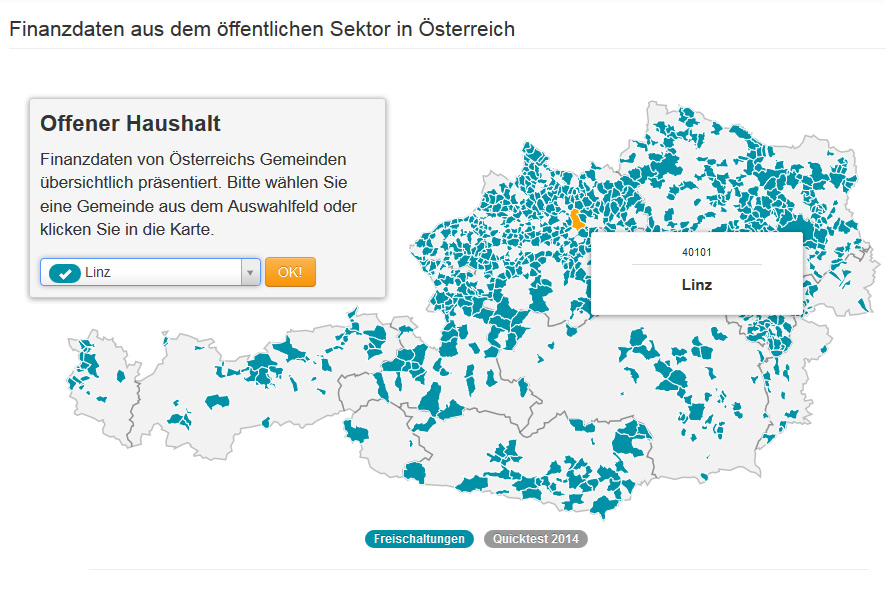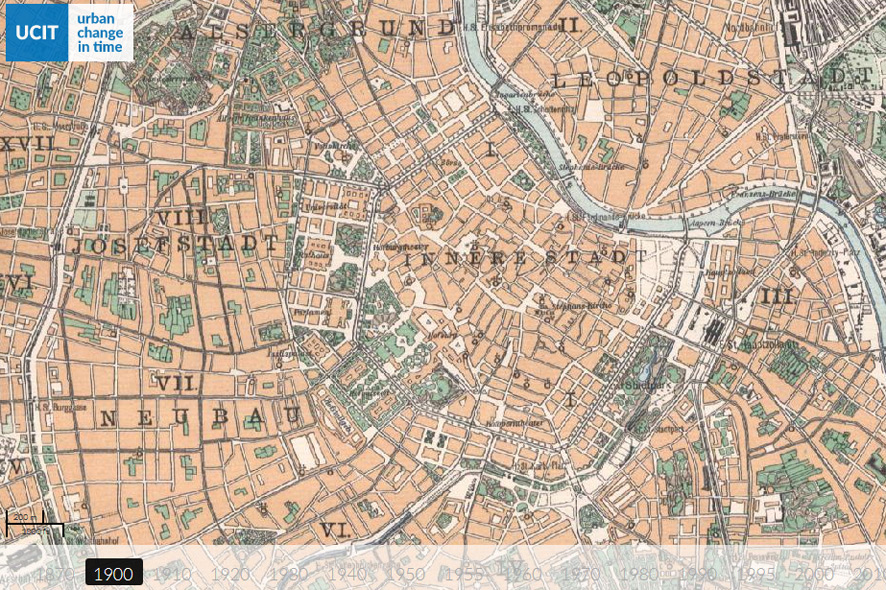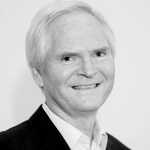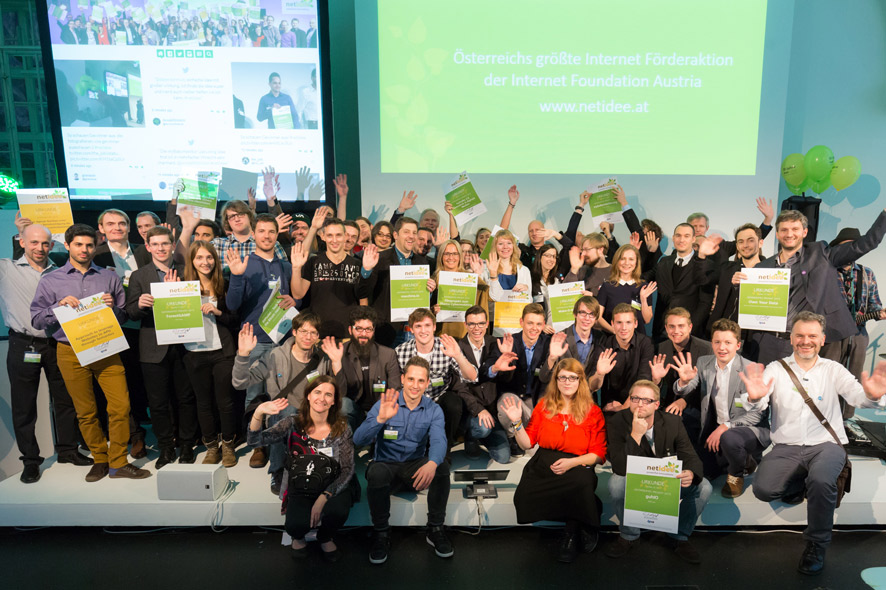The Internet Foundation Austria (IPA)—whose members include the Austrian domain registration agency nic.at—has been providing subsidies via netidee to individuals, universities and private firms in Austria to develop net-based ideas for 10 years now. One of the primary aims is fostering innovative ways to utilize the internet. Since 2005, a total of about six million euros has been invested in promising internet projects. Now, the release of the names of the 2015 funding recipients provides a great opportunity for a chat with the director of netidee, Ernst Langmantel. In this interview, he discusses the submitted ideas and goes into detail about a few of them.
When you consider the projects submitted this year, do you detect a trend, areas in which solutions are especially being sought at present?
Ernst Langmantel: We received a total of 157 funding applications. Since we established special prizes this year for the best submissions dealing with The Internet & the Environment as well as Open Science, there was a strong concentration on these areas, which, of course, was the desired outcome. On the whole, there’s currently a great deal of interest in various aspects of the Internet of Things (IoT), followed by issues like in privacy and gamification. But we’re also specifically encouraging totally new approaches, and they’re playing a prominent role. And I want to emphasize that the results of our subsidized projects are all open source, so they’re available to the general public to use and develop further.

Credit: data.offenerhaushalt.at
Could you give us a couple of examples of projects that are being subsidized by netidee this year?
Ernst Langmantel: Glad to. Let’s start with a really fascinating technology project: “BitPocket – Tools for the Bitcoin,” which is designed to make it easy for any company to accept Bitcoin payments. “Macchina.io” is an open-source software development platform for IoT gateways and devices. One of several civil society projects is “MEHR!Medientransparenz,” an effort to breathe life into media transparency laws by interlinking extant public data sets. Then there’s “data.offenerhaushalt.at” that makes available financial data from over 800 communities and makes it possible to evaluate and interrelate the data in a variety of ways as well as to describe them in an international data format so this material can also be linked up to other data portals.
Media competence occupies the focal point of a film entitled “Cybermobbing” and “SICHER SOCIAL” is all about showing young people how to make their experience on social media sites a secure one. Open science is promoted by “Forschung: Raus aus dem Elfenbeinturm” [Research: Out of the Ivory Tower]. “Open Sheet Music Display” makes a Java Script library for digital music notation available to the user’s browser. “UCIT-Urban Change in Time,” the follow-up project of a previous netidee grant recipient having to do with scholarly dissertations, presents an impressive graphic depiction of Vienna’s urban architectural development over the centuries. And OpenStrom is an open hardware/open software project that implements the much-discussed smart meter functionality as an open platform for all. Last but not least, there’s a project entitled “Isaac –Machine Learning for Online Games“ that uses self-learning concepts from genetic engineering research to develop self-learning computer games. This is primarily an effort to achieve proof of concept, and here, netidee is right on the leading edge!

Credit: UCIT – Urban Change in Time
In your two areas of emphasis this year, the internet & the environment and open science, what are some of the particularly promising projects?
Ernst Langmantel: The special Open Science prize—which, incidentally, was awarded by a jury that included prominent Austrian “Science Buster” Werner Gruber—went to “GameSurvey,” a project that deploys gamification for the purpose of advanced scientific data gathering. Proof of concept had already been achieved by a predecessor project, so this is a matter of user-friendly implementation. The challenge here was that when classic data gathering methods are used in conjunction with sensitive topics like Nazism, interviewees often do not give honest answers. But if queries are “packed” in some aspects of a game, scholars have considerably better prospects.
The special Internet and the Environment prize goes to “FoodCoopShop,” software designed to facilitate food ordering and administration within the framework of these buyers’ organizations. Food coops not only provide high-quality, locally grown and in many cases organic foodstuffs; they also cut down on the distances delivery trucks have to travel and thus greatly reduce CO2 output. Our external juror in this category was Helga Kromb-Kolb, a multiple prizewinning climatologist. At our awards ceremony held in conjunction with a big event at Vienna’s Museumsquartier, she expressed her hope that the new social media online will soon generate a broad-based change in the ecological opinions prevailing among the general public and thereby keep climate change to a minimum. In her view, all the technical conversions to alternative energy sources are proceeding too slowly, and there are only a few years left until we reach the point of no return! Finally, from among the environmental projects submitted to us, there’s one I’d like to highlight. “ForestGAMP” was produced at the Ybbs Technical School, where a class gathered data to quantify changes to the local climate and their impact on leaf size, leaf evaporation and CO2 intake. By the way, descriptions of all the subsidized projects are available online at netidee.at.


And it won’t be long ‘til 2016 Prix Ars Electronica! Plus, in cooperation with netidee, we’ll also be awarding a special internet prize in the u19 – CREATE YOUR WORLD category this year for youngsters under 19 years of age in Austria. The winning idea will be honored with the 2016 netidee and a cash stipend of 1,000 euros. Complete details are online at ars.electronica.art/u19/prix. And in case you were wondering: the submission phase of the “big” 2016 Prix Ars Electronica, the world’s most time-honored competition in the media arts, will commence as usual in January 2016. There’s more info at ars.electronica.art/prix

Ernst Langmantel received his degree in communications engineering from Vienna University of Technology in 1983 and then went to work as a software developer at Siemens in Vienna. In the field of communications technology, the leading edge at the time was Germany’s analog mobile phone network C, and engineers were rejoicing that the decision had been made to expand the system to accommodate a then-sensational 100,000 subscribers. Langmantel subsequently made the move to private communications systems where, as a project director with mobile phone network experience and a few patents to his credit, he played a key role in multicell wireless expansions for telephone systems on the basis of the DECT digital wireless standard. In 1998 at the outset of the deregulation of public telephone networks throughout the EU, Langmantel was appointed director of the technical department of Austria’s regulatory agency for telecommunications, and later also for broadcasting. In this capacity, he worked in an exciting interdisciplinary field at the nexus of technology, business and law, and was the man with chief responsibility for the Austrian telephone number system during this period. In search of new challenges in 2011, Langmantel became a self-employed consultant in the field of telecommunications technology with projects in the Near East. Since early 2013, he has also been chairman of the board of directors of Internet Privatstiftung Austria, where his responsibilities include development of the netidee subsidy program.
